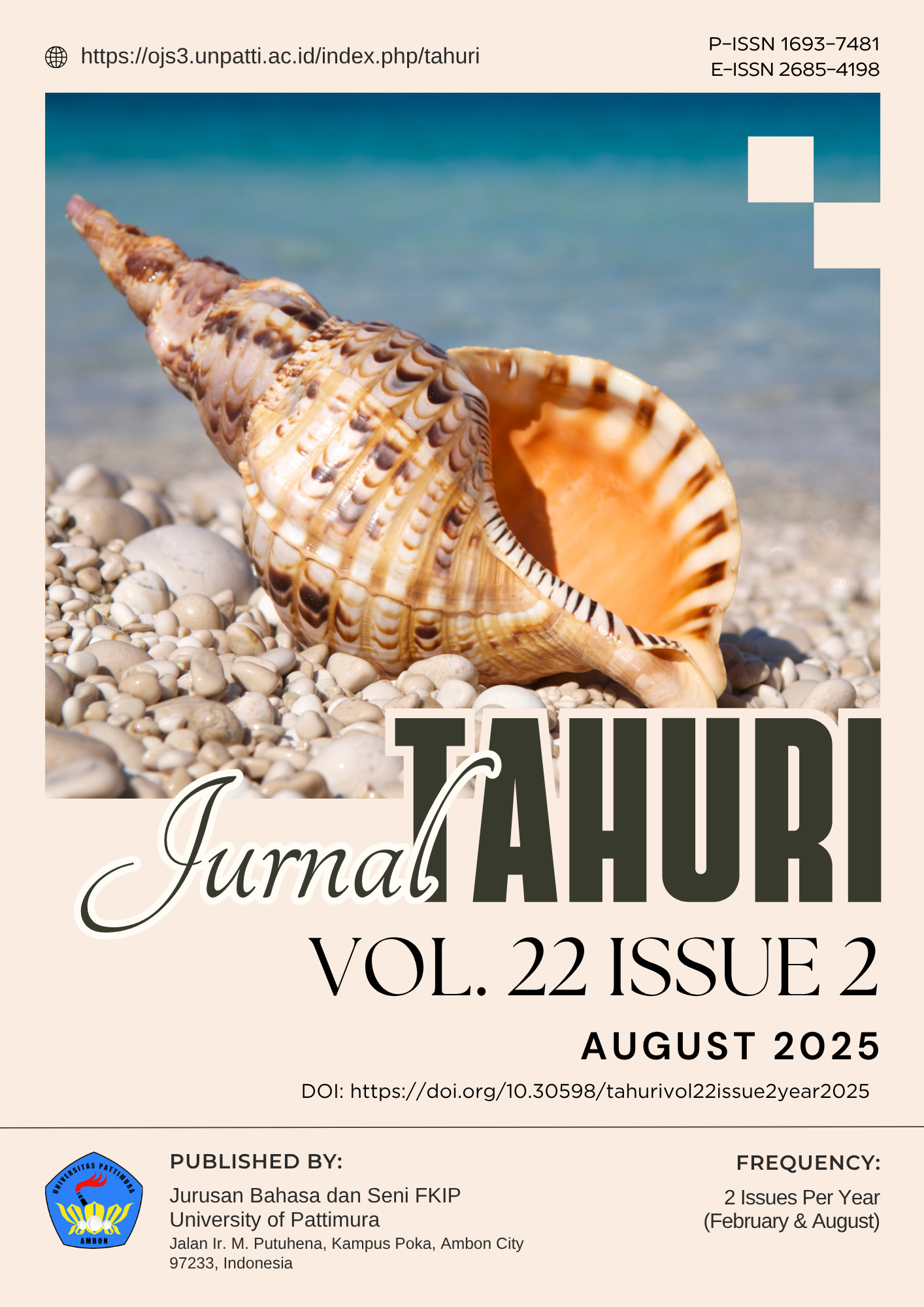Perceived Standardness and Local Language Features in Academic Writing: A Sociolinguistic Study of Ambonese Students in Indonesia
Abstract
This study investigates how local linguistic features and perceptions of standardness influence academic writing among university students in eastern Indonesia. Although Indonesian functions as the national academic language regulated by KBBI and PUEBI, the local Malay variety—Bahasa Melayu Ambon—retains strong social and cognitive functions in higher education. The research examines the linguistic characteristics of this variety in students’ academic texts, explores students’ perceptions of their language use, and analyzes the sociolinguistic implications of the gap between national norms and local practices. Using a qualitative descriptive approach within a sociolinguistic and language ideology framework, data were drawn from 15 academic texts and 10 interviews with Sociology students at a state university in Ambon. Analysis identified systematic lexical, morphological, syntactic, and orthographic features (e.g., beta, katong, dong, su, mo, seng ada) and applied Woolard and Schieffelin’s framework to interpret language beliefs. Findings reveal that students internalize local forms as standard Indonesian, reflecting a “local standard ideology” reinforced by limited academic writing instruction and dominant local norms. The study contributes theoretically by expanding sociolinguistic inquiry to written academic texts, methodologically by combining textual and perceptual data, and practically by informing localized academic literacy programs in multilingual settings.
Downloads
Copyright (c) 2025 Afdhal Afdhal

This work is licensed under a Creative Commons Attribution 4.0 International License.




